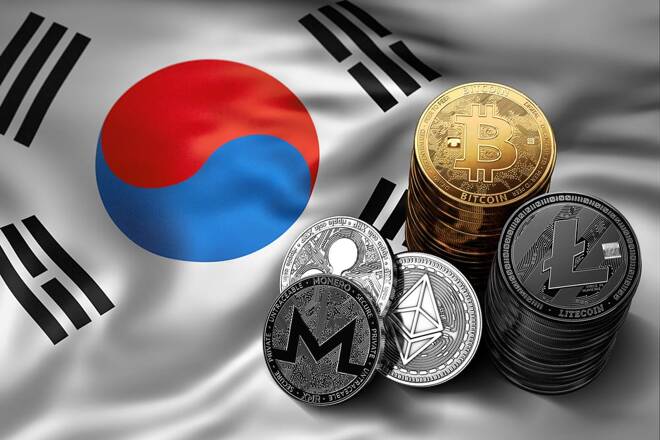Advertisement
Advertisement
ICO Market Revival Imminent in Crypto-Friendly South Korean
By:
South Korea targets the digital asset space with a proposed lifting of the ICO ban and a further delay to the 20% crypto capital gains tax.
Key Insights:
- This week, the Initial Coin Market (ICO) got a boost from news of fresh crypto reforms.
- In 2017, the South Korean government introduced an outright ban on ICOs.
- South Korean President-Elect Yoon Suk-yeol has big plans for the digital asset space.
Initial coin offerings (ICO) are back in the South Korean news headlines. A South Korean ICO ban has been in effect since 2017.
This year, the South Korean Presidential Election threw digital assets into the mix. In March, President-Elect Yoon targeted young voters by minting NFTs on the AERGO blockchain, each with a price tag of 50,000 Korean Won.
Since Yoon’s election victory, the South Korean government is revisiting other areas of the digital asset space to drive innovation.
South Korean Government Plans Lifting of the 2017 ICO Ban
This week, South Korea’s Presidential Transition Committee introduced a new crypto framework. To support innovation and growth in the digital asset space, the Digital Asset Framework Act looks to drive investor trust and growth.
According to the report, the government plans to introduce two categories, security and non-security ICOs.
In November 2021, FX Empire reported a possible lifting of South Korea’s ban on ICOs that has been in effect since 2017.
According to the report, Do Gyu-sang, vice chairman of South Korea’s Financial Services Commission (FSC) argued that,
“ICOs need a reexamination according to the applicable financial reporting requirements.”
Do reportedly added,
“We cannot delay the ICO any longer. (ICO) must be included in the Capital Market Act. To do that, we need to revisit some provisions and look at the relationship with the (Virtual Industrial Rights Act) enactment or special law.”
The news coincided with South Korea planning the implementation of a 20% tax on crypto capital gains of more than 2.5 million won.
In September 2017, South Korea introduced an outright ban on initial coin offerings (ICO). At the time, the ban was big news. Initial coin offerings were the primary avenue for crypto startups to raise funds.
In the heydays of the ICO market, cybercriminals marred an effective way for legitimate startups to raise capital.
ICOs were attractive for startups as they removed the involvement of intermediaries. Investors could purchase native coins at a discount.
For the South Korean government and even the Chinese government, which introduced a ban before South Korea, the rise in scams was of greater concern.
With Yoon’s inauguration on Tuesday, May 10, there has also been chatter on the crypto capital gains tax.
South Korea Plans to Delay Introduction of Punitive Crypto Tax
In November, Reuters reported a delay of South Korea’s crypto tax by one year to January 2023. The National Assembly reportedly passed a bill to delay the capital gains tax from crypto trading by one year.
There is also news of the South Korean government planning to further delay the crypto tax.
A reopening of the ICO market and the removal of a 20% crypto capital gains tax would place South Korea in the mix to become a hub for digital assets and innovation. Other jurisdictions have taken more constrictive measures that may need revisiting.
Amongst the most successful ICOs, by highest Return on Investment (ROI), are Cardano (ADA), EOS (EOS), Ethereum (ETH), and NEO (NEO). The ICO price for ETH was just $0.311 compared to the current price of $2,669.
About the Author
Bob Masonauthor
With over 28 years of experience in the financial industry, Bob has worked with various global rating agencies and multinational banks. Currently he is covering currencies, commodities, alternative asset classes and global equities, focusing mostly on European and Asian markets.
Advertisement
